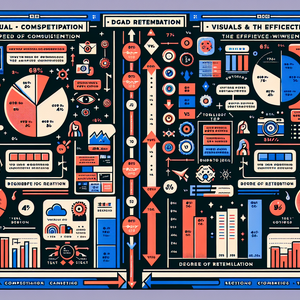The Gender Pay Gap in Investment Banking: A Deep Dive

The gender pay gap is a well-documented phenomenon that has sparked discussions across various sectors for decades. In investment banking, numerous studies have confirmed that female analysts earn significantly less than their male counterparts, with a report from the Financial Times indicating that female analysts in major investment banks earn approximately 20% less than male analysts, even when controlling for factors such as experience, education, and location. This discrepancy does not merely exist at the entry-level; it tends to widen as analysts progress in their careers, resulting in a concerning trend where women are disproportionately underrepresented in senior positions. For example, data from the Global Financial Markets Association (GFMA) highlights that while women make up about 50% of entry-level positions, their representation drops to approximately 25% in senior leadership roles. This attrition underscores the systemic barriers that women face as they attempt to climb the corporate ladder in investment banking.
Potential Causes of the Gender Pay Gap
The gender pay gap in investment banking can be attributed to several interrelated factors.
Lack of Representation in Senior Roles
The underrepresentation of women in senior roles is a significant contributor to the gender pay gap. Women often encounter barriers to advancement, such as unconscious bias during performance evaluations and promotion decisions. Research by McKinsey & Company reveals that women are less likely to receive high ratings on performance reviews, which can hinder their chances of promotion.
Limited Networking and Mentorship Opportunities
Networking and mentorship play crucial roles in career advancement in investment banking. Women frequently report having fewer networking opportunities and access to mentors, which can limit their visibility and advancement within the industry. A report from Catalyst found that women in finance are less likely to have influential sponsors, which can significantly impact their career progression.
Work-Life Balance Challenges
The demanding nature of investment banking, characterized by long hours and high-pressure environments, can disproportionately impact women, particularly those with family responsibilities. Societal expectations often place the burden of childcare and household duties on women, making it challenging for them to meet the rigorous demands of the job. This imbalance can lead to burnout and attrition among female analysts.
Salary Negotiation Disparities
According to research from the American Association of University Women (AAUW), women are less likely than men to negotiate their salaries. This reluctance can result in lower initial offers, which, combined with the compounding effects of bonuses and raises, leads to significant disparities in long-term earnings. In an industry where compensation structures are often based on a combination of base salary and performance bonuses, starting on the lower end of the pay scale can have lasting repercussions.
The Impact on Career Trajectories
The implications of the gender pay gap extend beyond immediate financial disparities; they can fundamentally shape the career trajectories of female analysts. The ongoing wage gap can lead to decreased job satisfaction, lower motivation, and higher turnover rates among women in investment banking. Research from the Center for American Progress suggests that when women feel undervalued and underpaid, they are more likely to leave their jobs, further perpetuating the cycle of underrepresentation in the industry. Moreover, the lack of equitable pay can influence workplace culture. A homogenous leadership team may overlook the diverse needs and perspectives of all employees, ultimately affecting the firm’s performance and innovation. A diverse leadership team is often more attuned to the changing needs of clients and the market, leading to better decision-making and financial outcomes.
Steps Toward Addressing the Gender Pay Gap
In recent years, there has been a growing recognition of the gender pay gap within the investment banking sector. Many firms are beginning to implement proactive measures to tackle this issue.
Transparent Salary Reporting
Several investment banks have adopted transparent salary reporting practices to ensure accountability regarding pay equity. By publicly sharing compensation data, firms can identify discrepancies and take corrective actions.
Mentorship Programs
To promote the advancement of women in investment banking, mentorship programs targeted specifically at female analysts have been established. These programs connect women with senior leaders who can offer guidance, support, and advocacy throughout their careers.
Unconscious Bias Training
Training sessions aimed at recognizing and mitigating unconscious bias during hiring and promotion processes have been implemented in many firms. By raising awareness of ingrained biases, organizations can create fairer evaluation processes that promote equity.
Improved Work-Life Balance Policies
Recognizing the importance of work-life balance, several firms have introduced flexible working arrangements. Such policies benefit not only women but also men, fostering a more inclusive workplace culture. This shift can help retain talent and entice a diverse range of candidates.
The gender pay gap in investment banking is a multifaceted issue that necessitates a comprehensive approach to resolve. While progress has been made, significant work remains to be done. By understanding the underlying causes of the gender pay gap and implementing effective strategies to promote equity, investment banks can enhance the careers of their employees and improve overall performance. As discussions around gender equity continue to evolve, it is vital for investment banking firms to prioritize equal pay, representation, and opportunities for all analysts. By doing so, they will not only create a more inclusive and supportive workplace but also contribute to a more equitable and innovative financial industry.
Investment Banking Analyst
JPMorgan Chase, Goldman Sachs, Morgan Stanley
Core Responsibilities
Conduct financial modeling and valuation analyses to support mergers, acquisitions, and other transactions.
Prepare pitch books and presentations for client meetings, showcasing the firm's offerings and market insights.
Assist in drafting offering memoranda and other documentation required for capital raising.
Required Skills
Strong analytical skills with proficiency in Excel and financial modeling techniques.
Excellent communication and presentation skills to effectively convey complex information.
Ability to work under pressure and manage tight deadlines in a fast-paced environment.
Unique Qualifications
A Bachelor’s degree in finance, economics, or a related field; internships in finance or investment banking are highly valued.
Equity Research Analyst
Bank of America, Citigroup, Barclays
Core Responsibilities
Analyze financial data and trends to provide investment recommendations on stocks and sectors.
Prepare detailed research reports and presentations that summarize findings and forecast company performance.
Engage with company management teams and industry experts to gather insights for investment thesis.
Required Skills
Strong understanding of financial statements and valuation methodologies (DCF, comparative analysis).
Proficient in data analysis tools and software (e.g., Bloomberg, FactSet).
Excellent written and verbal communication skills for report writing and presentations.
Unique Qualifications
Bachelor’s degree in finance or accounting; CFA designation is often preferred.
Risk Management Associate
Deutsche Bank, Credit Suisse, UBS
Core Responsibilities
Assess and monitor risks associated with trading, lending, and investment activities.
Develop risk models and conduct stress testing to evaluate potential impacts on the organization.
Collaborate with various departments to ensure compliance with regulatory requirements and internal policies.
Required Skills
Strong quantitative skills and experience with statistical modeling and analysis.
Familiarity with risk management frameworks and regulatory standards (Basel III, Dodd-Frank).
Effective problem-solving skills and attention to detail.
Unique Qualifications
A degree in finance, mathematics, or a related field; advanced degrees or certifications (FRM, PRM) can be advantageous.
Compliance Officer
Wells Fargo, State Street, HSBC
Core Responsibilities
Ensure that the firm adheres to all regulatory requirements and internal policies related to trading and investment activities.
Conduct compliance audits and risk assessments to identify potential regulatory breaches.
Develop and implement compliance training programs for staff to promote adherence to laws and regulations.
Required Skills
Strong understanding of financial regulations and compliance frameworks relevant to investment banking.
Excellent analytical and investigative skills to assess compliance risks.
Strong interpersonal skills to communicate effectively with various stakeholders.
Unique Qualifications
A degree in law, finance, or business; relevant certifications (e.g., Certified Compliance & Ethics Professional) are beneficial.
Financial Advisor
Edward Jones, Ameriprise Financial, Charles Schwab
Core Responsibilities
Provide personalized financial planning and investment advice to individual clients.
Analyze clients' financial situations and develop tailored strategies to meet their goals.
Stay updated on market trends and investment opportunities to provide informed recommendations.
Required Skills
Strong interpersonal and relationship-building skills to develop trust with clients.
Proficiency in financial planning software and investment analysis tools.
Ability to explain complex financial concepts in a clear and accessible manner.
Unique Qualifications
Bachelor’s degree in finance or business; obtaining certifications such as CFP (Certified Financial Planner) can enhance credibility and career prospects.


